Charcoal and Comfort: Citadel of Erbil on Edgware Road
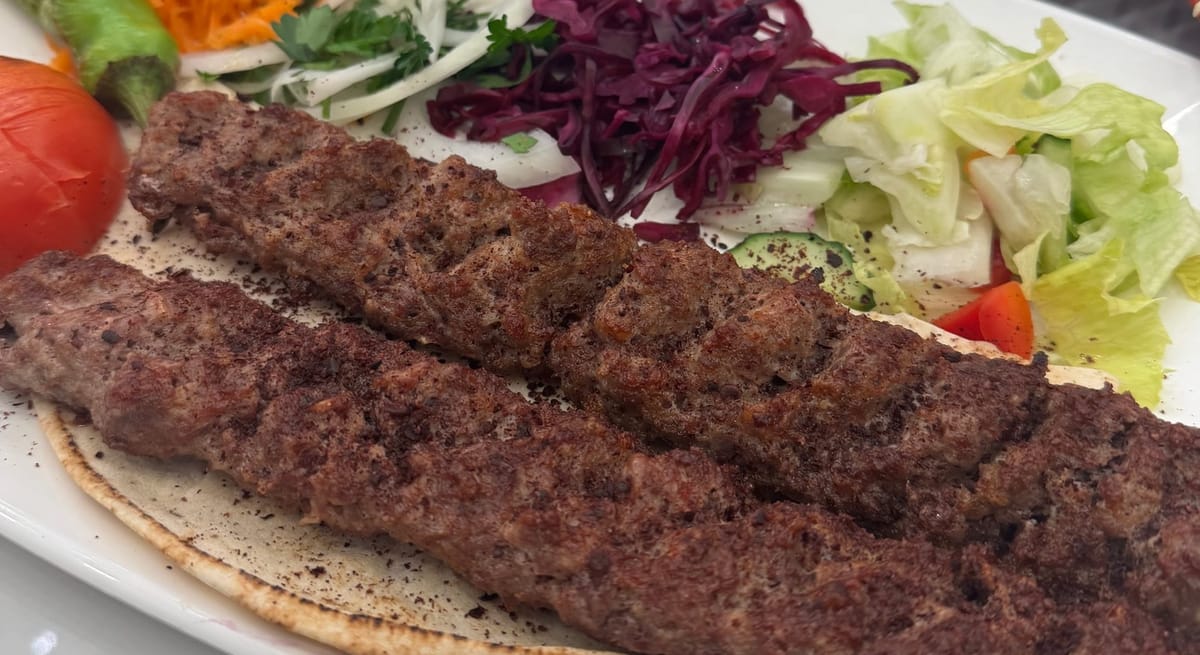
There is a point in every visitor’s London sojourn when one must decide between the primal need for nourishment or the masochistic ritual of peak-hour public transport. On a crisp April evening, as a cramped rush-hour East Midlands Train departure beckoned me northward to Sheffield, instead I chose dignity. I chose flavour. I chose Citadel of Erbil on Edgware Road.
This stretch of W2 has recently been my base when work brings me to the capital. Not for the reasonable hotel rates (though they help), nor the adequate transport links, but for the distinctive perfume that wafts along the pavement – the mingled aromas of shisha smoke and Middle Eastern spices that promise satisfaction.
The shawarma is a great portable culinary achievement. Every culture has its own version (the Indian kathi roll, the Greek gyros, even our humble chip butty stands as a primitive ancestor) but there’s something transcendent about the marriage of boldly spiced meat, sharp citrusy ting and garlicky sauce that makes a proper shawarma the apex predator of hand-held cuisine. Edgware Road understands this alchemy in a way that most British high streets, with their under-seasoned offerings, simply do not.
On this particular evening, however, I ventured beyond my usual shawarma haunts to Citadel of Erbil, a restaurant named after the ancient fortified settlement in Iraqi Kurdistan. The interior strikes a balance between contemporary elegance and traditional touches – backlit landscapes of mountainous terrain grace intricate geometric cutouts along the walls, while marble-topped tables reflect the soft lighting. At 6pm, the restaurant stood conspicuously quiet, a serious under-appreciation for what was about to unfold.
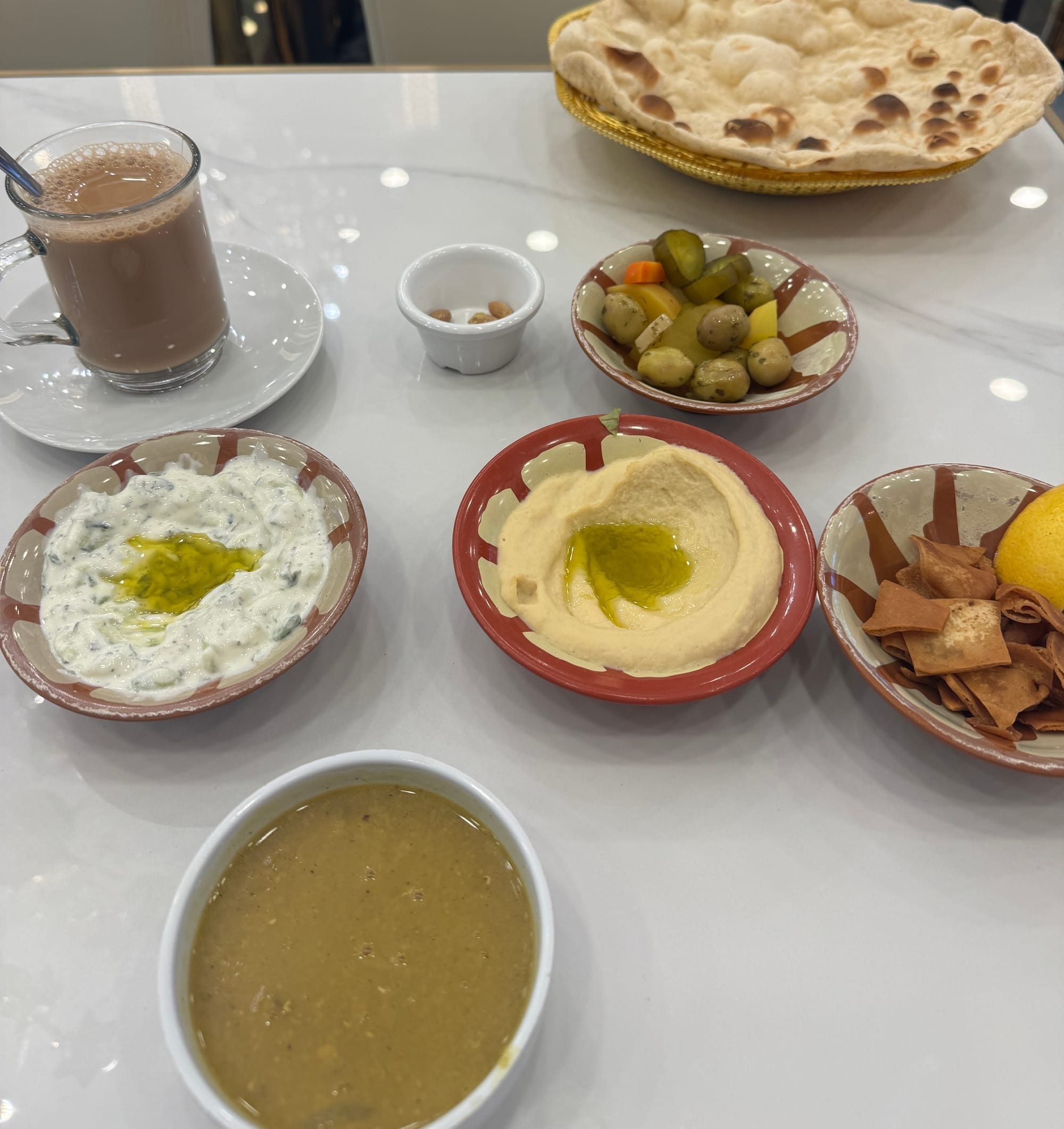
Before I could properly settle, a parade of small plates materialised – an unrequested but entirely welcome opening salvo of cold mezze. A silky hummus pooled with olive oil, tzatziki flecked with herbs, pickled vegetables and a bowl of soul-warming lentil soup, all accompanied by pillowy flatbread hot from the tandoor. This unasked-for generosity – absent from any menu description – set the tone for the evening.
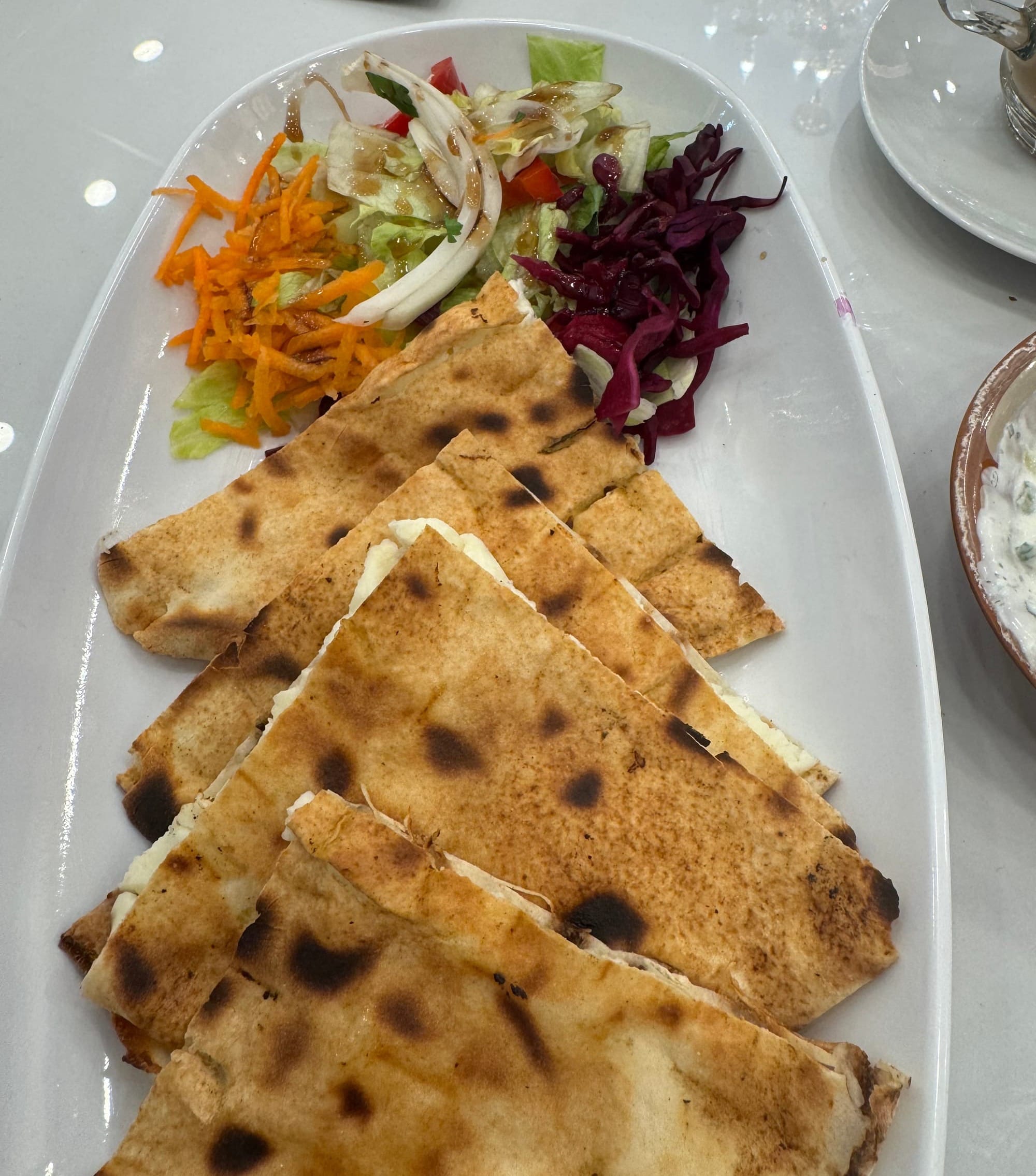
My ordered starter, Kellaj, arrived looking deceptively simple, charred Lebanese flatbread cut into neat triangles, concealing a molten heart of halloumi cheese. The first bite delivered a peculiar comfort that only proper cheese can provide. What I can only describe as a culinary embrace. The bread itself carried those essential char marks that speak of proper heat and attention.
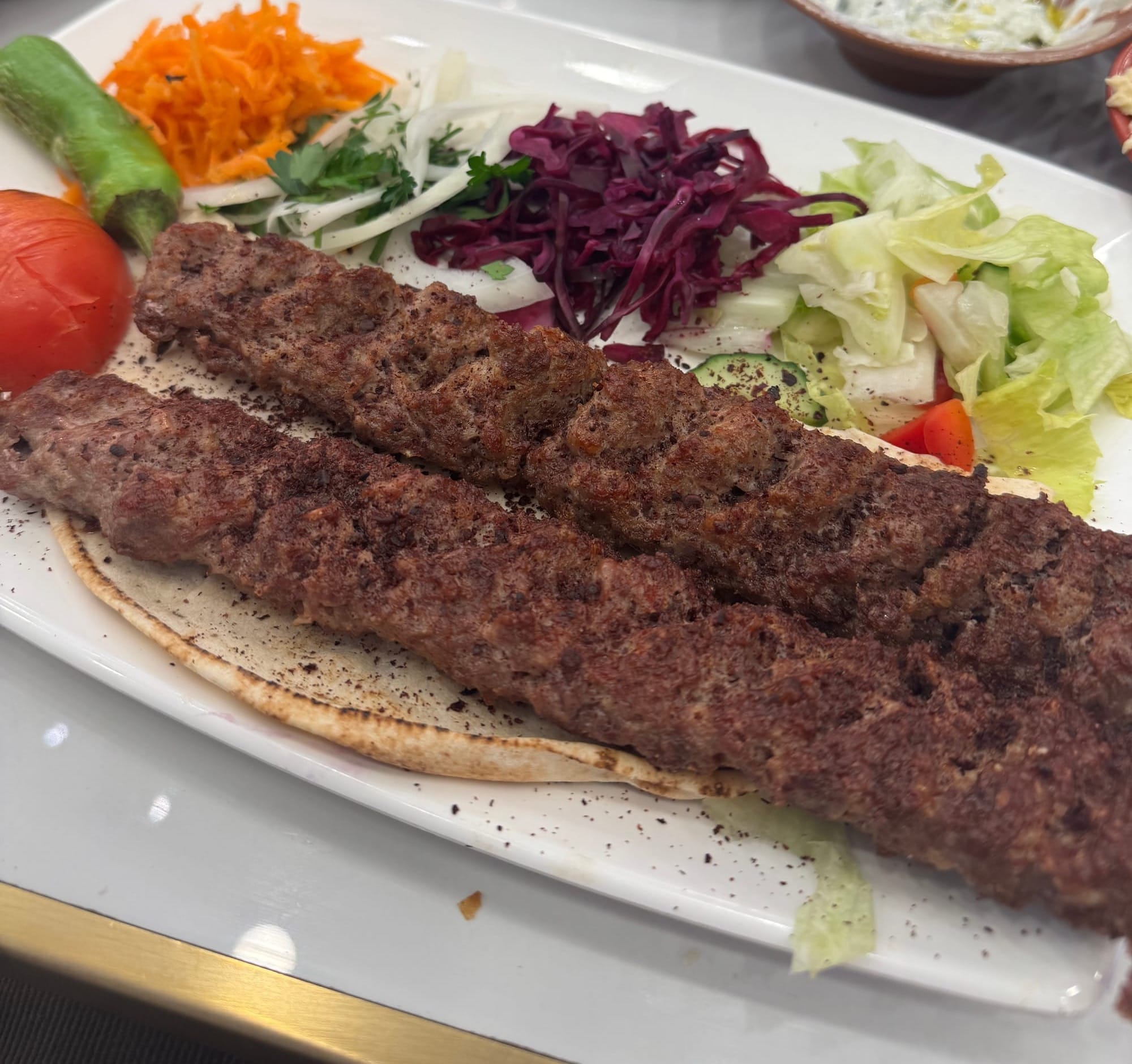
The eponymous Erbil kebab followed, two generous skewers of minced lamb that had been introduced to fire with expert timing. Too often, minced meat can surrender its moisture to the grill, leaving behind something resembling construction material. Not here. These retained a blush of pinkness at their core, enshrouded in a crust seasoned with what appeared to be a restrained but confident hand with spices. The meat rested on flatbread that had selflessly sacrificed itself to absorb the juices, surrounded by a mosaic of shredded carrots, purple cabbage, and onions that provided both visual drama and textural counterpoint.
Kurdish kebabs differ from their Turkish or Lebanese cousins in subtle but significant ways – the meat is typically hand-chopped rather than machine-ground, creating a coarser texture that retains more moisture and character. They’re also distinguished by a distinctive spice profile that leans heavily on sumac, black pepper and dried mint, creating a complexity that’s earthy rather than fiery.
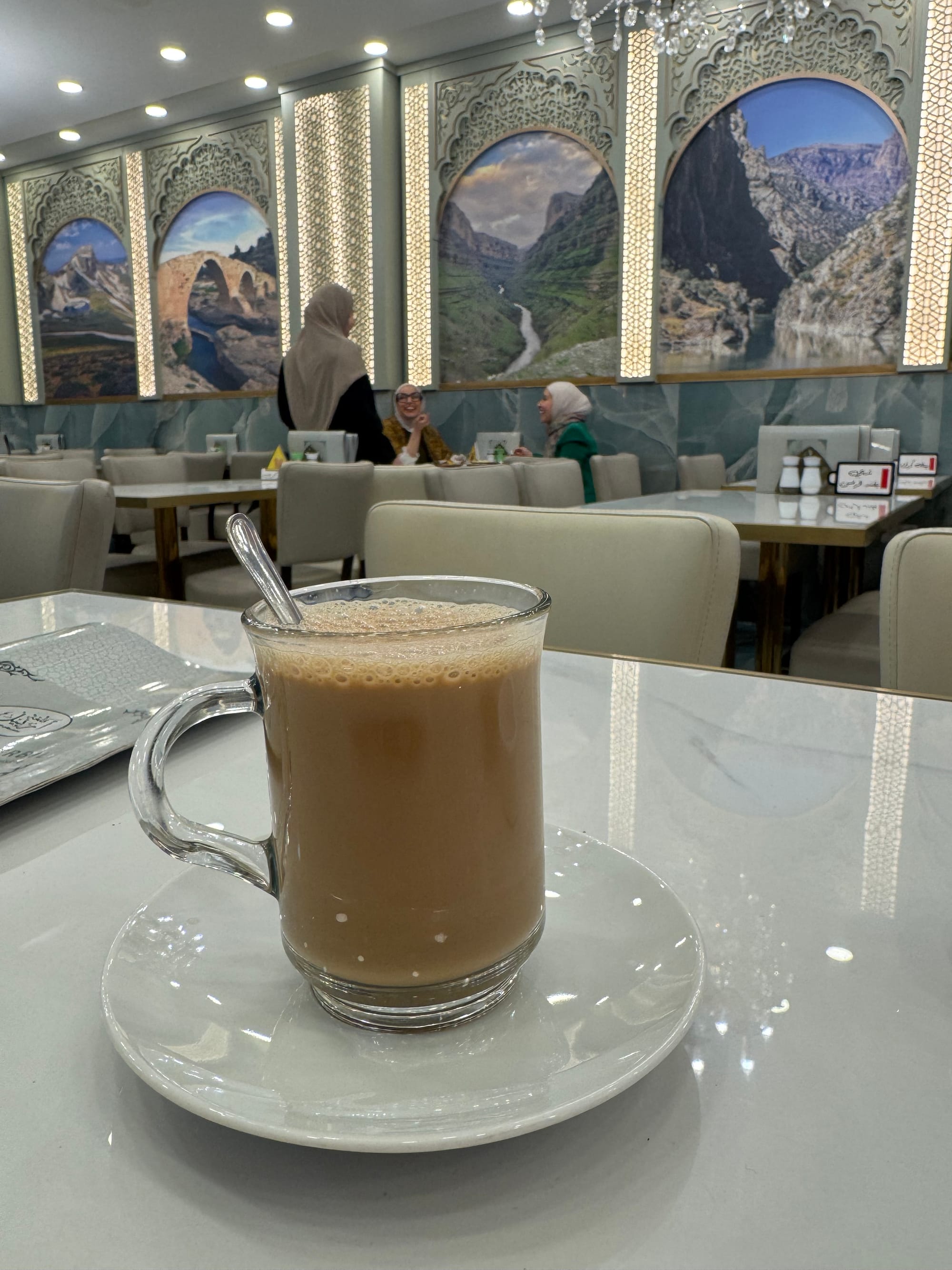
But the true revelation came in liquid form. The menu’s description of “Karak Tea (Charcoal grilled)” had initially puzzled me – how does one grill a beverage? The answer arrived in a glass mug: a milky, caramel-hued concoction with a frothy crown. The tea leaves, I learned, are toasted over charcoal before brewing, imparting a subtle smokiness that underpins the creamy sweetness. It’s the liquid equivalent of your favourite M&S jumper – comforting, luxurious and somehow both familiar and exotic.
All of this – the unexpected mezze procession, the cheese-filled embrace of Kellaj, the expertly executed kebab, and the revelation in a teacup – came to a grand total of £31 including a tip. In central London, where a grim Pret sandwich and coffee can easily relieve you of a tenner, this represents value of near-miraculous proportions.
The Citadel of Erbil is not revolutionising Middle Eastern cuisine. It is not employing molecular gastronomy or fashionable fusion. Instead they serve food prepared with care and generosity of spirit.
The ancient Citadel of Erbil in Iraq has stood for approximately 7,000 years, making it one of the oldest continuously inhabited settlements on Earth. Its London namesake deserves a fraction of that longevity, at the very least.
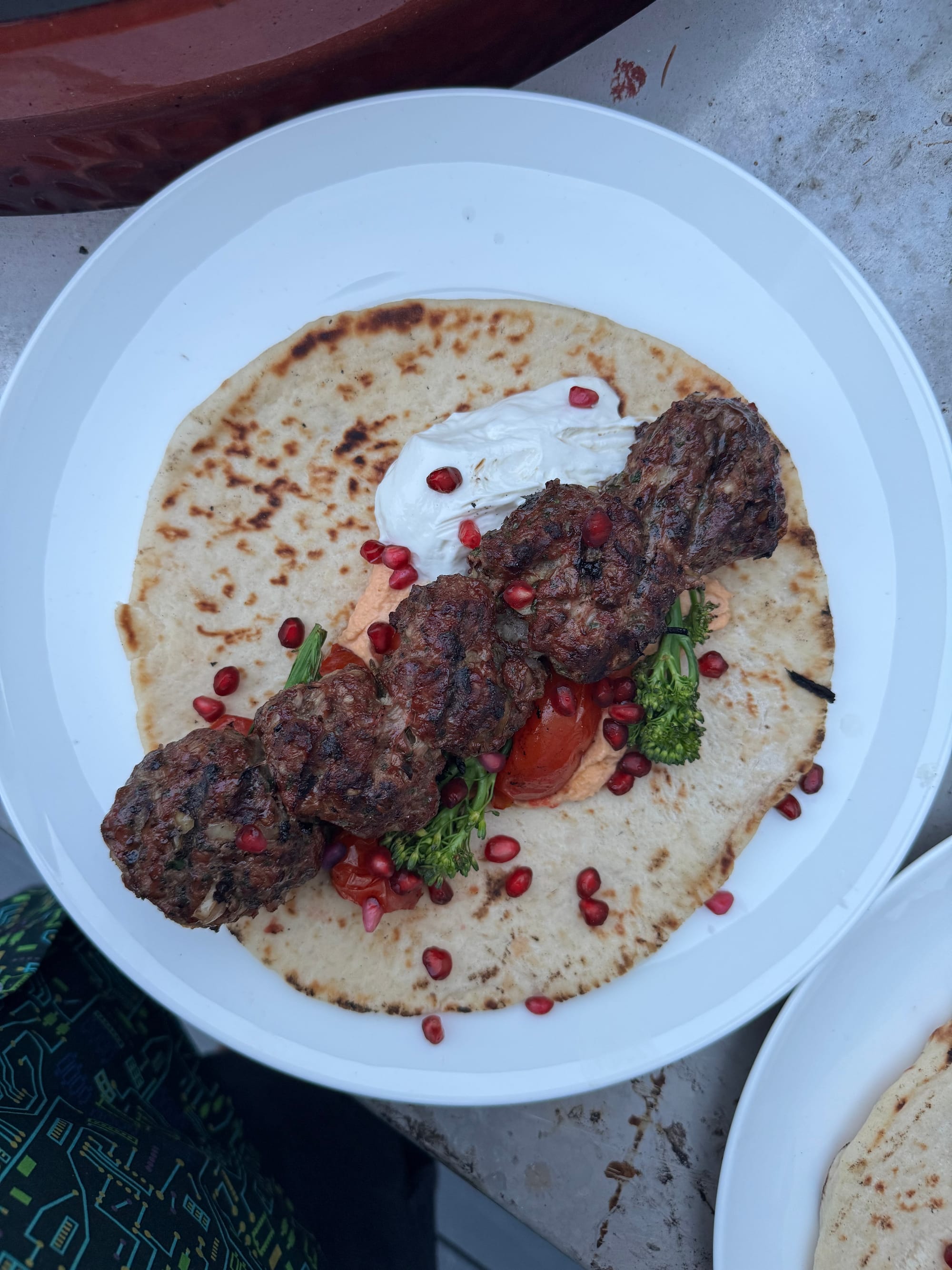
Anyone seeking to recreate the main course, my closest success. has come from following the Lyula Kebaby recipe in The Azerbaijani kitchen [Amazon UK] cooked over coal gently (with the kamado top reading about 100C for half an hour or so and then a quick browning over a hotter fire).